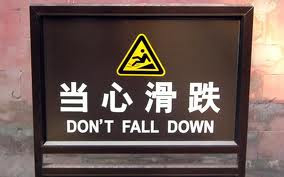Egyptian writer Naguib Mahfouz (1911-2006) wrote the type of book that I would proudly have on my shelf, and I have three that together are known as 'The Cairo Trilogy', a saga of a Muslim family in Cairo during Egypt's occupation by the British at the end of World War I. The first in the trilogy is Palace Walk.
The first line, "She woke at midnight", short and succinct, leads you into the life of the al-Jawad family who lives on a street in Cairo called Palace Walk. The story carries you through the rooms and corridors of the family's home, along the alleys and into the goings-on in the neighbourhood. The rich descriptions and insightful observations draw you into the saga, and it is as if you're right there in the midst of it all.
The second in the trilogy, Palace of Desire, continues the story about seven years after the culmination of events in the first book. Members of the al-Jawad family are at different stages of their lives during which they are faced with difficult questions reflecting the revolutionary spirit of that time.
The family's saga concludes in the final book, Sugar Street. The children of the al-Jawad family are all grown up and are themselves parents. World War II is brewing and the world around them is changing. In fact, change is the recurring theme, not only in regard to society but also beliefs and values.
The richness of the prose reminds me of Vikram Seth's A Suitable Boy, also a family saga that is full of details as well as drama. Naguib Mahfouz certainly deserved the 1988 Nobel Prize for Literature. Regarded as "one of the first contemporary writers of Arabic literature,... he published over 50 novels, over 350 short stories, dozens of movie scripts and five plays over a 70-year career" (Wikipedia).



















